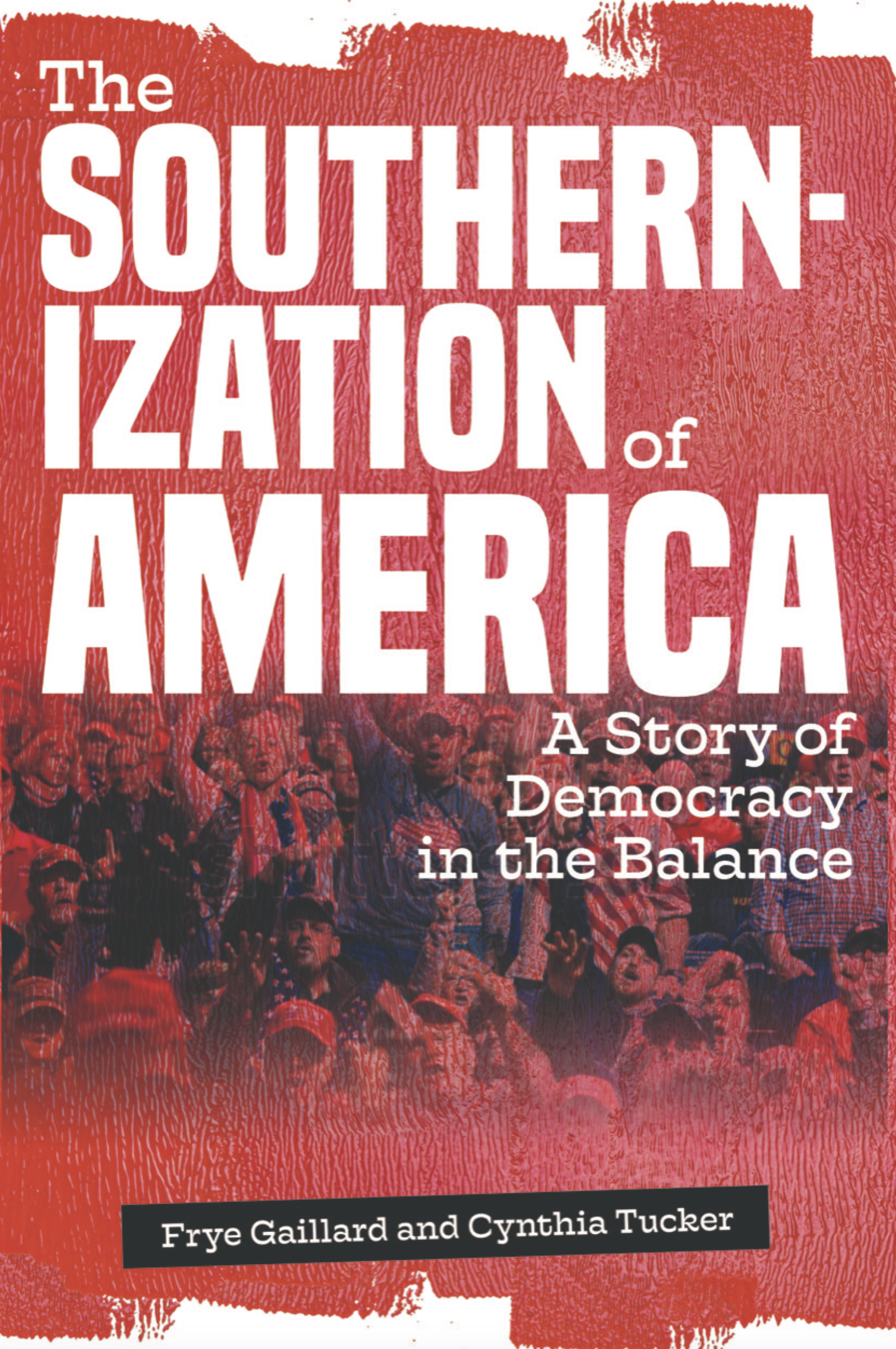5 HOT BOOKS: How America Became Southernized, Trump's Washington, and More
/1. The Southernization of America: A Story of Democracy in the Balance by Frye Gaillard and Cynthia Tucker (New South)
Gaillard and Tucker, journalists and frequent collaborators at the University of South Alabama in Mobile, update John Egerton’s 1974 classic The Americanization of Dixie: The Southernization of America and explains how segregationism became key to the Republican Party. In a set of sharp essays, Gaillard and Tucker regard the Southernization of America from the eve of the Carter presidency through “the toxic era of Donald Trump.” George Wallace with his hate-filled rallies of white workers enraged by the social movements of the 1960s, foreshadowed Trump, the authors argue, but they focus on more than personalities. Among the great strengths of their book is its spotlight on the evolution of increasingly polarized rhetoric and ramped-up voter suppression policies that extended bigotry and intolerance through the nation.
2. Thank You for Your Servitude: Donald Trumps Washington and the Price of Submission by
Mark Leibovich (Penguin Press)
Please don’t worry, not another Trump headlines rehashed into a book. Leibovitch takes his aim at the former president’s enablers. Leibovitch, now at The Atlantic, is a genius of satire, and his specialty is character portraits rendered with fine-tipped pen -- Giuliani, Steve Bannon, and Corey Lewandowski are Trump’s collection of “pet rocks.” The roster of press secretaries are “C-listers” whose status can be temporarily bumped to “B-list status” if they are nearby Trump himself. Leibovich’s tags are certainly clever, but he makes a larger argument about the dangers of the tribal enablers – unelected – surrounding the former president.
3. Hollywood Ending: Harvey Weinstein and the Culture of Silence by Ken Auletta (Penguin)
Harvey Weinstein is in prison after New York Times journalists Jodi Kantor and Megan Twohey, and Ronan Farrow of The New Yorker, exposed him as a sexual predator, sparking the #MeToo movement. Legendary media reporter Auletta was on to Weinstein as a violent bully and abuser in 2002, calling the producer a “self-absorbed narcissist” in a profile for The New Yorker, and while not early to the story as victims were concerned, could not get them to speak on the record. Auletta’s new book has marinated over the years and benefits from 200 interviews to paint a fuller and darker picture of Weinstein, from his beginnings as a concert promoter in Buffalo bullying his way into Hollywood and creating Miramax with his brother. Among one of America’s keenest observers of power, from Wall Street to Hollywood, Auletta captures Weinstein’s rise and his determined, ultimately failed efforts to kill the first big Kantor and Twohey story.
4. Salmon Wars: The Dark Underbelly of Our Favorite Fish by Doug Frantz and Catherine Collins (Holt)
Rich in protein, low in calories. High in Omega-3 fatty acids. Brain-heart healthy. Not so fast. Collins and Frantz, fierce investigators and forceful writers, take on “Big Salmon” with the knockout punch of Eric Schlosser’s Fast Food Nation. They provide clear evidence that beyond the brutality of the hatcheries, gigantic, unsanitary aquafarms pollute seabeds, damage the environment, and pose substantial health risks for consumers of salmon. Collins and Frantz call for oversight by the USDA, pointing to research revelations of cancer-causing chemicals in farmed salmon and lax definitions of what is truly “organic.” The authors liken “Big Fish” to “Big Tobacco” in the industries’ campaigns that pump up faulty science and subvert scientists and environmentalism.
5. Fellowship Point by Alice Elliott Dark (Scribner/Rucci)
A great old-fashioned tall glass of lemonade of a novel – classic, neither sweet nor tart, ideal for a rewarding, invigorating summer day – featuring a friendship between two women of affluent Philadelphia Quaker families whose bond deepened over their summers on the verdant Maine peninsula Friendship Point. The shared property has been in their families for generations, and its fate drives the novel. The friends have taken different paths to their 80s: Never-married Agnes, a successful author, has cancer and writer’s block, while Polly is a mother with a husband to whom she defers. Dark is a lauded short story writer, included in Best American Short Stories of the Century, and that skill is evident in chapters that segue between past and present to propel this expansive, wise novel that rewrites the history of women as landowners with agency and is sharp in psychological acuity as it spans decades of secrets and mysteries.










